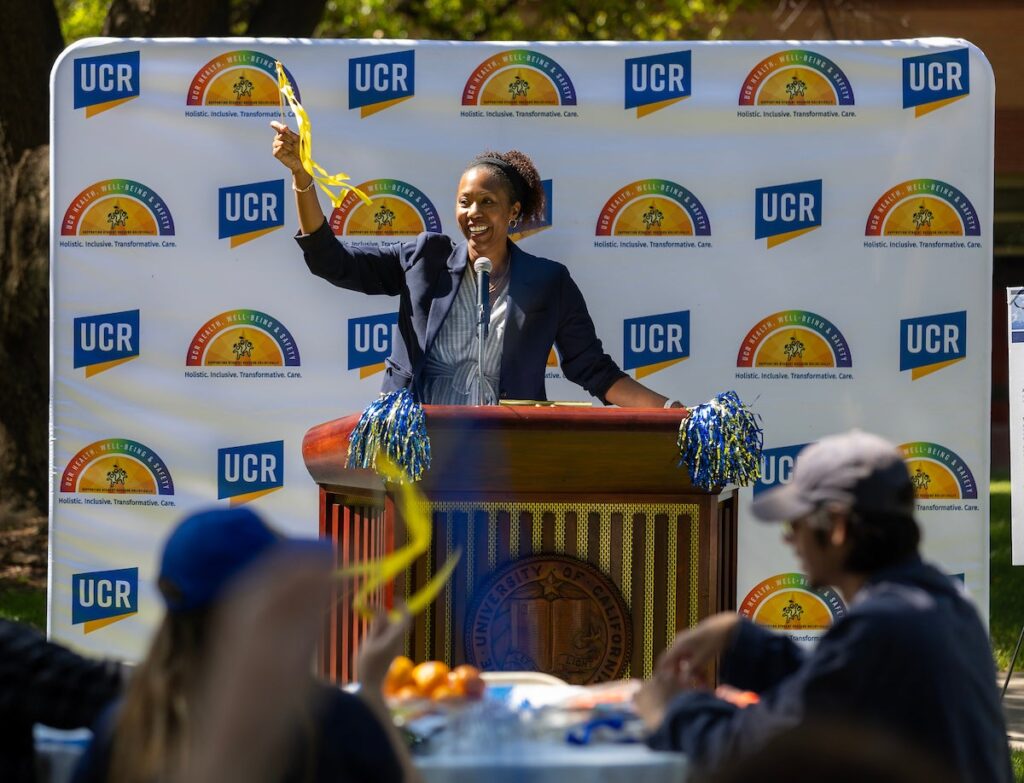UC Riverside joined an international group of universities in adopting the Okanagan Charter, pledging to incorporate health and well-being into all aspects of campus policies and practices.
The campus marked UCR's adoption of the document's principles with a symbolic signing ceremony on Tuesday, April 30, on Hinderaker Lawn. On April 1, President Kim A. Wilcox formally signed a document providing signatories with a set of principles and framework for participating in the International Health Promotion Campus Network.
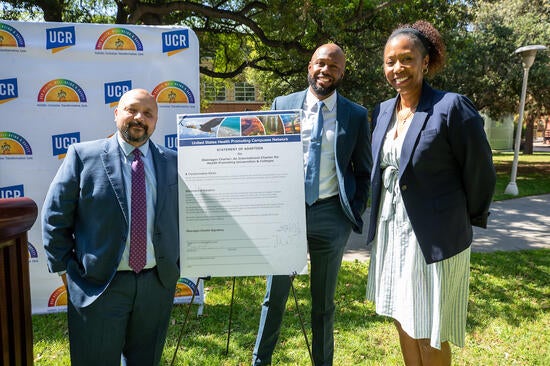
In his announcement last month, Wilcox said there are a variety of ways campuses can put this pledge into action. One is to review campus policies and practices with an eye toward health, well-being, and sustainability. Another thing he does is provide equal access and opportunity for students and employees to grow. As a research university, UCR can also directly contribute to a healthy community through research and innovation, he said.
The Charter was developed at the 2015 International Conference on Health-Promoting Universities and Colleges held in British Columbia. It is named after the Okanagan indigenous nation and territory located in British Columbia and Washington state.
UCR was one of the first 30 campuses in the United States to adopt this charter and one of four campuses in the University of California System. UCLA, the University of California, Berkeley, and the University of California, Irvine are also signatories to the charter.
More than 400 people attended the celebration, which included free plants, back massages, games, a photo booth, and healthy snacks.
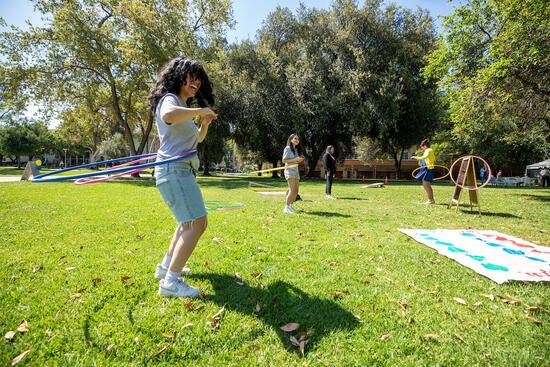
Dennis Woods, vice president for health, welfare and safety, said the celebration helps plant the seeds for campus efforts to promote the health of students, staff and faculty. Joining the International Charter strengthens the work UCR is already doing around health and well-being as part of a larger global effort, she said.
“It is about prioritizing efforts related to the well-being of our campus community to ensure that health promotion strategies are woven into the core fabric of our students, faculty, staff, and campus,” Woods said. “Being part of the Okanagan Charter felt like a good fit for our current situation.”
Vice Chancellor and Chief Human Resources Officer Alex Najera told students, staff and faculty at the ceremony that when he learned of the charter, he knew his department needed to join in the effort.
“Our main focus is understanding that you are not just an employee, but a human being with comprehensive needs,” he said. “We need to do everything we can to create an environment and conditions that are conducive to your growth. That is central to our ethos.”
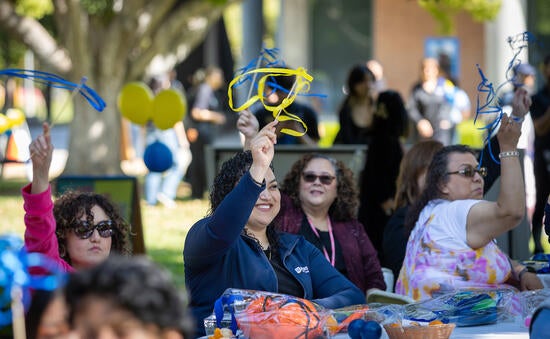
Mr Woods, Mr Najera and Deputy Prime Minister Michael Richards signed a mock-up of the charter document at the ceremony.
“This charter provides us with more than just guidelines,” Richards said. “This is a framework to foster holistic development and empowerment across our community. It moves beyond UC Riverside’s traditional boundaries and silos to bring health and wellness to the campus community.” It is a call to action to be built into the very fabric of .”
Woods said the principles are consistent with UCR's recent actions to take a holistic approach to health. This includes the creation of the Health, Welfare and Safety Department in July 2021, which brings together multiple departments from police to counseling under one umbrella. forest. Last year, the campus opened the Student Health Counseling Center, which brings together medical, mental health, and welfare services in one convenient, modern location.
Prior to that, UCR Healthy Campus, part of a larger UC-wide Health Campus network, created programs that promote balance between school and work life. Funding for Healthy Campuses ran out several years ago, but the campaign has initiated or supported programs such as smoke-free campuses, increased access to drinking water stations, improved diets, and fitness activities. did.
Human Resources continues to provide regular wellness programs and services to faculty and staff through ongoing activities such as webinars and newsletters with tips.
“I liken this initiative to Healthy Campus 2.0 because in many ways we are building on the momentum created during that time,” Woods said. “We have used the Healthy Campus Model as a catalyst for the Okanagan Charter in that we focus on aligning and embedding health practices and strategies into the mission and vision of the university, particularly across all departments on campus. ”
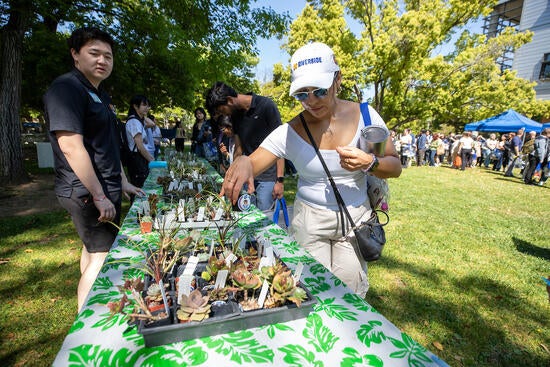
Each charter member will develop their own strategic plan for implementing health promotion on campus.
Inspired by this Charter, UCR created the Five Pillars, detailing how we promote health, well-being, sustainability, and equity on campus. Its pillar is the self-development of students and employees. Campus Policies and Practices. Local and global action. research and knowledge. and a supportive environment.
UCR's next step is to create subcommittees and groups made up of students, faculty, and staff and organized around a variety of topics. These groups will help develop a plan on how to achieve the five pillars.
Woods said part of that process will align the charter's recommendations with similar goals in UCR's strategic plan.
“There are several examples from each of the different pillars of work that can be done or is currently underway,” she said. “We are also thinking innovatively about how we can develop programming and resources going forward to continue to support these pillars.”


